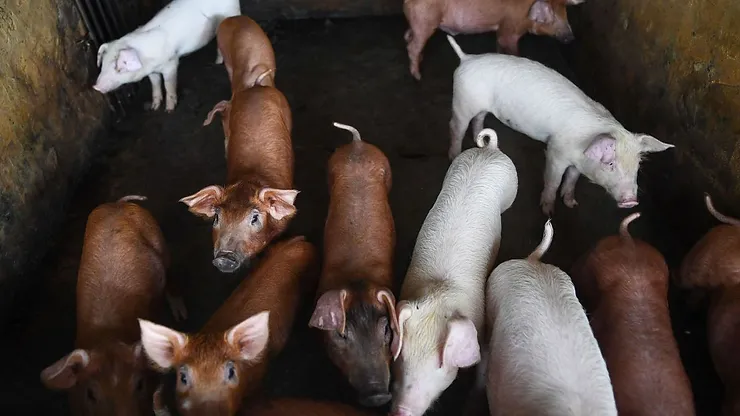By: Alex Chu
A team of researchers from Yale University pumped synthetic fluid for hours into dead pigs until they noticed the liquid allowed the dead organisms to breathe temporarily. Blood circulation was restored, and some living cell functions were returned to essential organs like the heart, liver, and kidney.
The findings were published on Wednesday, August 3, in Nature News and have far-reaching conclusions in the medical field. Scientists are reported to have very ethical practices regarding the definition of death, as the distinction between the dead and the living becomes increasingly unclear.
The scientists were particularly interested in examining how extracorporeal membrane oxygenation treatment (ECMO) would affect the dead pigs. After six hours of fluid intake, the scientists restored adequate oxygen levels “to the pigs’ whole bodies, which restored certain key liver cell functions in the organ such as the heart, liver, and kidneys.”
Under the microscope, it was difficult to tell the difference between a healthy organ and one which had been treated with Organix technology after death,” Zvonimir Vrselja, a neuroscientist at the Yale School of Medicine who took part in the study, said in a news release. However, the ECMO failed on their ECMO machine test because they didn’t have a blood supply of oxygenate. What was shocking was the movement of the pig’s neck and head hooked up next to its organic and motor systems. They also worked on the pig’s brain. “What research like this suggests is that death does not occur at a particular time,” said Nathan Emmerich, a bioethicist from Australian National University. The latter is not affiliated with Yale studies. Instead, he explained, death takes place over time as the processes keeping an organism alive gradually cease — and the new findings suggest some of the damage caused by the loss of those functions can be repaired.
“The fruits of this research are unlikely to enable us to revive just anyone but may help us save a limited number of people in certain circumstances,” Emmerich said.











